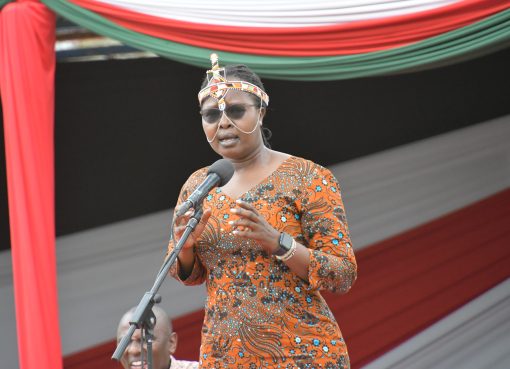Health Ministers and experts from the Eastern and Southern Africa region have converged in Nairobi in efforts towards strengthening regional health systems for emergency preparedness, response and resilience against infectious diseases.
Health Cabinet Secretary (CS) Susan Nakhumicha said that infectious diseases remain a serious health challenge across Africa and particularly the Eastern and Southern African region.
Speaking in Nairobi during the launch of the Health Emergency Preparedness, Response and Resilience project (HEPRR) for Eastern and Southern Africa (AFE), Nakhumicha said frequent outbreak of infectious diseases such as Ebola, Marburg, Yellow Fever, and Chikungunya in recent years have continued to exert pressure on healthcare systems, compromising normal service delivery and exerting a huge impact on local economies.
“Our region has also suffered the impact of climate change and in this the health sector has not been spared. Kenya and the entire East African region is currently experiencing unprecedented flooding that has sadly led to loss of hundreds of lives, injuries and displacement of the people,” said Nakhumicha.
The CS explained that besides destroying critical health facilities and infrastructure, the floods have cut off millions of people from accessing health services.
“Appreciating that our health systems are recovering from the impact of the Covid-19 pandemic and acknowledging that Covid-19 may not be the last such pandemic, it is imperative that as a region, we strategically work together to enhance our health system preparedness,” she said.
Nakhumicha highlighted that the region must work together to enhance its response and resilience through public health surveillance, pharmaceutical and vaccine manufacturing, risk communication and community engagement, reduction of gender inequalities and building of resilience to climate-related risks.
“I am glad to note that the Health Emergency Preparedness, Response and Resilience Program, supported by the World Bank will provide the platform through which our national and collective programmatic outputs will contribute to the continent’s health security,” said Nakhumicha.
The CS explained that this program’s alignment to the overall African Union Health Strategy 2016-20130; Africa CDC’s New Public Health Order and ECSA-HC strategic plan reaffirms that they are on the right track.
“The driving force for the successful realisation of this project lies in our governments’ commitment towards ensuring delivery of Universal Health Coverage (UHC) as a development objective as enshrined in our Constitution and outlined in the United Nations Sustainable Development Goal No. 3,” she said.
The CS continued… “On this I am happy to share that Kenya has made UHC one of the key deliverables of the Government under President Dr. William Ruto. We have initiated key reforms and programmes aimed at realising UHC and one of our key priorities is promotive and preventive health and preparedness will play a key role in these efforts.”
She said that as this program is being launched, leaders in various capacities in the health sector must realise that the Whole is Greater than the Sum of its Parts.
“The onus is on us to support our technical teams as they execute the program components while ensuring harmonisation of legislative, workforce development and public health surveillance efforts where needed,” said the CS.
Nakhumicha exuded confidence that the meetings’ deliberations will amplify the rallying call for the New Public Health Order, build resilient and robust health systems, while ensuring equitable, affordable, and accessible health service delivery to all citizens.
Also present were Ministers of Health from Ethiopia, Burundi, Democratic Republic of Congo, Sao Tome and Principe.
By Joseph Ng’ang’a




